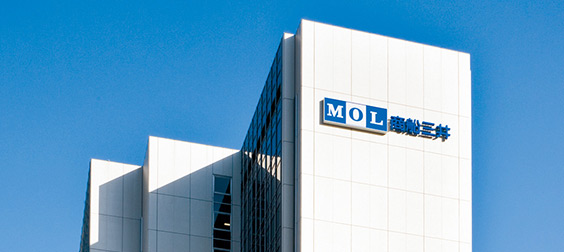Mitsui O.S.K. Lines, Ltd. has joined the Ammonia STS trial which was led and successfully completed by the Global Centre for Maritime Decarbonisation (GCMD).
In the absence of ammonia bunkering infrastructure, STS transfers offer the closest proxy to bunkering operations when it replicates the essential steps involved. With this objective in mind, the trial was conducted with a transfer to simulate bunkering at the Port of Dampier in the Pilbara region of Australia, an ammonia production region. It is also expected to be one of the ammonia bunkering hubs in near future, leveraging the port’s experience with ammonia export. During this trial, two STS transfers of 4,000 cubic meters of Ammonia took place between MOL’s LPG/Ammonia carrier “Green Pioneer” and the “Navigator Global” owned by Navigator Gas.
Prior to the trial, together with Yara Clean Ammonia (YCA), the Green Pioneer’s charterer (Note 1) as well as the supplier of the ammonia used in this trial, MOL provided contribution to have marine-experts on board during the trial period to provide technical guidance as an Impact partner of GCMD (Note 2). In addition, MOL has repeatedly joined detailed discussions with GCMD, YCA, and other project partners, including safety consultants, STS service providers, ports, Australian Government agencies, to ensure the safe operation of the series of STS.
MOL and the Yara Clean Ammonia have been working together since the signing of a memorandum of understanding on decarbonization projects including ammonia area in 2022, and the success of this trial has been achieved through close collaboration aligned with this agreement.
These STS transfer trials were part of a GCMD-led initiative in collaboration with Partners to enable ammonia as a marine fuel. The consortium conducted risks and safety studies and develop emergency response procedures for the transfers based on the findings and recommendation from GCMD’s 2023 safety study on piloting ammonia bunkering and its plans for actual operations.
Professor Lynn Loo, CEO, GCMD said: “Translating the recommendations from our 2023 safety study into action through this pair of STS transfers demonstrates the essence of GCMD – operationalising pilots and trials to accelerate maritime decarbonisation. We are deeply grateful to all our partners for their support, without which this pioneering effort would not have been possible. This pilot marks a crucial step towards preparing the ecosystem for the use of ammonia as a marine fuel, paving the way for eventual bunkering when ammonia-fueled vessels become available.”
Murali Srinivasan, Senior Vice president and Commercial Head of YCA said: “International shipping account for approximately 3% of the global GHG-emissions and we see clean ammonia as the zero-emission fuel to decarbonize the shipping industry and meet the IMO targets. For more than a century we have been producing and shipping ammonia with the highest safety standards and with efficient ammonia operations.
Collaboration on safety is innate to our thinking and we are grateful to all partners contributing to the successful completion of this ammonia STS trial. The successful ship-to-ship transfer of ammonia is a critical learning step forward in enabling ammonia bunkering operations in a port environment as global shipping moves to effective use of clean ammonia as a fuel. ”
Jotaro Tamura, Senior Managing Executive Officer of MOL said: “As one of the major shipping companies operating about 880 vessels, we are very proud to be part of this Ammonia STS trial which will bring a significant progress in the Ammonia Bunkering. This will be a great example of a collaboration between cargo owners, government and port authorities, and ship operators, which will be crucial for the transition to alternative fuels. We appreciate the collaborative organizing and planning by GCMD and Yara Group as well as the partners involved for the success of this trial. ”
MOL Group has positioned environmental strategy as one of its main strategies in its management plan “BLUE ACTION 2035” and set a goal of achieving net zero emissions by 2050 in “MOL Group Environmental Vision 2.2.” The MOL Group will contribute to the realization of a decarbonized society by further accumulating a track record of high-quality and safe ammonia transportation and actively participating in the wide-ranging value chain of ammonia, which is expected to see large-scale demand in the future due to its introduction as a fuel.
Source: Mitsui O.S.K. Lines






